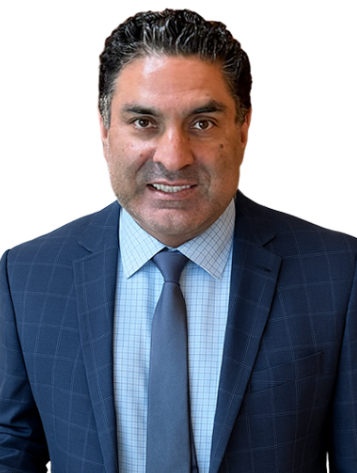For professionals who are leading the way in their fields, an EB-1 visa can be one of the quickest and most prestigious avenues toward getting permanent residency in the United States. Whether you’re a tech innovator, academic researcher, actress, artist, or international executive, understanding tips for a successful EB-1 visa application in California can help you open the door to getting your green card.
The state of California is well known for entrepreneurship, research, entertainment, and innovation, meaning that professional candidates looking to bring their talents to the area have great prospects. If they don’t know how to correctly prepare their application, however, they could be facing unnecessary obstacles. Therefore, it’s crucial to understand what needs to be done to maximize your success in 2025.
Understand the EB-1 Categories
In order to get your application right the first time, it’s crucial to understand what the EB-1 categories are and which one may be the right fit for you. There are three main types of EB-1 visa categories:
- EB-1A. This is for individuals who have extraordinary abilities and, therefore, national or international recognition in fields like business, education, arts, athletics, and science.
- EB-1B. This visa category is for outstanding researchers and professionals who have a strong track record in the academic field.
- EB-1C. For multinational managers and executives, this visa category is for people who have held leadership roles abroad and are transferring to a US branch.
Each category comes with different documentation requirements and distinct criteria. To set yourself up for success, it’s important to understand what category is right for you.
Build a Strong Portfolio of Evidence
With every successful EB-1 visa application comes robust documentation and evidence that backs an individual’s eligibility. To meet the high standards of having extraordinary abilities or being outstanding in their field, evidence needs to be clear and persuasive.
To get an EB-1A visa, you need to satisfy at least 3 out of 10 USCIS criteria, such as media about you, membership and distinguished associations, a higher salary compared to others in your field, and having original contributions of significance. Another option is to win a major international award, such as an Oscar or Pulitzer Prize.
EB-1B and EB-1C visa applications can show research citations, organizational charts, letters from employers, and records of previous performance.
Highlight California Connections
If you’re already based in California, it’s crucial to highlight how your talents are in alignment with the state’s global leadership in areas like entertainment, education, healthcare, innovation, or tech. For example, Los Angeles is internationally known for music and film, Silicon Valley is leading in biotech and artificial intelligence, and the University of California campuses are pioneering research across the globe.
As of February 2025, California’s labor force is currently made up of 19.7 million people, with 17.9 million of these jobs being non-agricultural. Even though there is a 5.4% unemployment rate, the demand for foreign talent is still increasing, particularly in industries that are reliant on those who are specialized in what they’re doing.
Avoid Common Mistakes
A denial for an EB-1 visa does not always happen because of ineligibility, but because of applications that are disorganized or weak. Common mistakes that lead to application rejections include:
- Submitting claims that are unsupported or vague
- Failing to show how achievements impacted the industry at large
- Not including crucial documentation
- Submitting forms that are outdated or paying incorrect filing fees
Presenting your application in a professional manner, with consistent formatting, well-labeled supporting evidence, and a convincing legal cover letter can make the difference between acceptance and rejection.
Work With an Experienced EB-1 Attorney
Some of the most complex cases in immigration law are EB-1 cases. Therefore, by working with a skilled California EB11 lawyer, you can:
- Understand the visa category that’s right for you
- Benefit from a personalized legal strategy
- Gather, organize, and present strong evidence
- Submit compelling legal arguments
- Navigate denials or requests for evidence
Lawyers who are familiar with the USCIS offices in California, such as those in San Bernardino, San Francisco, and Los Angeles, are familiar with the local adjudication trends and can make sure your application reflects those preferences.
FAQs
What Makes the EB-1 Visa Different From Other Employment-Based Visas?
The EB-1 visa is different from other employment-based visas because it is a first-preference employment-based green card that doesn’t require complex documentation like a PERM labor certification. The EB-1 visa also typically tends to have quicker processing times. This type of visa is reserved only for people who can prove they are outstanding professors or researchers, have extraordinary abilities, or are multinational executives.
How Many Criteria Do I Need to Meet for the EB-1A Visa?
For an EB-1A visa, you will need to meet at least three out of 10 USCIS criteria or show evidence that you have won a one-time major international award, such as an Olympic medal, Oscar, or Pulitzer Prize. To convince USCIS that you’re eligible, it is crucial to have strong supporting documentation. A dedicated attorney can help you demonstrate that you meet all the requirements.
What Are the Common Reasons EB-1 Applications Are Denied?
Common reasons that EB-1 applications may be denied include not having sufficient third-party validation, failing to show how your achievements have had a greater impact on your field on the national or international level, lacking robust evidence, and submitting documentation that is vague in nature. Therefore, it’s crucial to ensure you submit the right documentation and clearly labeled evidence.
Should I Use Premium Processing?
Many EB-1 applicants do not know that premium processing is available for this type of visa. Individuals can pay extra to get their petition adjudicated within 15 calendar days by USCIS. For applicants who have an expiring visa or are on stringent timelines, this may be a good option. It’s important to note, however, that premium processing does not improve the chances of a positive decision. Rather, it only expedites it.
Take the Next Step Towards Getting Your EB-1 Visa Today
If you are a leading or recognized professional who is looking to get a green card through the EB-1 program, you’ve come to the right place. Contact a dedicated EB-1 attorney from U.S. Law Center today to schedule your consultation. Together, we can transform your achievements into a sustainable future in the United States.


